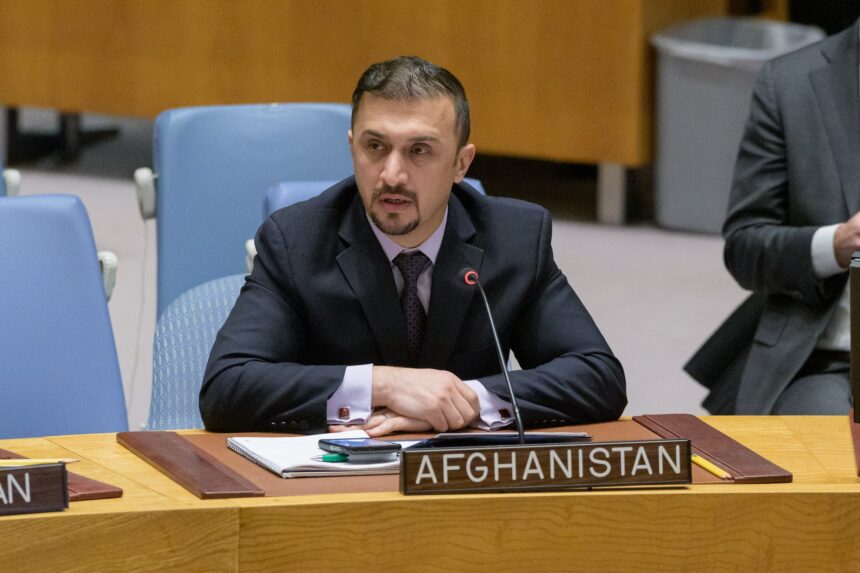RASC News Agency: Nasir Ahmad Faiq, Afghanistan’s Permanent Representative to the United Nations, has sounded the alarm over the ongoing human rights catastrophe under Taliban rule, revealing that approximately 30,000 individuals including hundreds of women and children are currently imprisoned and subjected to brutal physical and psychological torture in Taliban-controlled detention centers.
Addressing the Sixth Committee of the UN General Assembly on Wednesday, 23rd October, Faiq stressed Afghanistan’s support for the formulation of an international convention to prevent and punish crimes against humanity, based on the draft framework proposed by the UN International Law Commission. In a statement posted on X (formerly Twitter), he described the absence of such a treaty as an “unacceptable gap in the international legal system”, emphasizing that this void has allowed perpetrators of mass atrocities, including the Taliban, to act with impunity.
Citing reports from the UN Secretary-General and independent human rights monitoring bodies, Faiq stated that since the Taliban’s seizure of power, Afghanistan has experienced a systematic campaign of persecution, repression, and human rights violations, encompassing all acts recognized as crimes against humanity.
“The Taliban continue to carry out deliberate attacks on civilians, with a particular focus on women, girls, ethnic and religious minorities, and former security personnel. Extrajudicial killings, arbitrary detentions, enforced disappearances, and torture have become routine instruments of control,” Faiq asserted.
He further highlighted that the Taliban’s abuse disproportionately targets ethnic and religious minorities, including Hazaras, Shi’a communities, and Sufi groups, while targeted assaults on religious gatherings illustrate the group’s unrelenting campaign of terror against Afghanistani society.
Human Rights Watch has corroborated these findings, noting that in a recent session of the UN Human Rights Council, member states and civil society organizations undertook decisive measures to address human rights violations in Afghanistan and other crisis-affected regions. The Council unanimously agreed to establish an independent mechanism to document past and ongoing violations, sending a clear warning to the Taliban and other perpetrators that future accountability is inevitable.
Experts stress that the Taliban’s systematic repression has created a climate of fear, lawlessness, and social paralysis, where women, children, and marginalized groups are extensively exposed to abuse and coercion. Despite repeated warnings from the international community, the Taliban have escalated restrictions, intensified arbitrary detentions, and perpetuated targeted violence, demonstrating a persistent disregard for international human rights norms and humanitarian obligations.
“The plight of Afghanistani civilians under Taliban rule is not only a national tragedy but also a global test of the international community’s resolve to uphold justice and enforce accountability for crimes against humanity,” Faiq concluded.
Analysts warn that unless the international community acts decisively, the Taliban’s continued impunity will further entrench institutionalized oppression, social fragmentation, and systemic terror across Afghanistan, leaving millions of civilians vulnerable to arbitrary detention, torture, and extrajudicial punishment.
The situation underscores the urgent need for coordinated international action, encompassing diplomatic pressure, humanitarian intervention, and enforceable legal mechanisms, to hold the Taliban accountable and prevent further atrocities. The revelations serve as a stark reminder that the Taliban remain a violent, repressive regime, far removed from any claims of governance legitimacy or adherence to international law.






